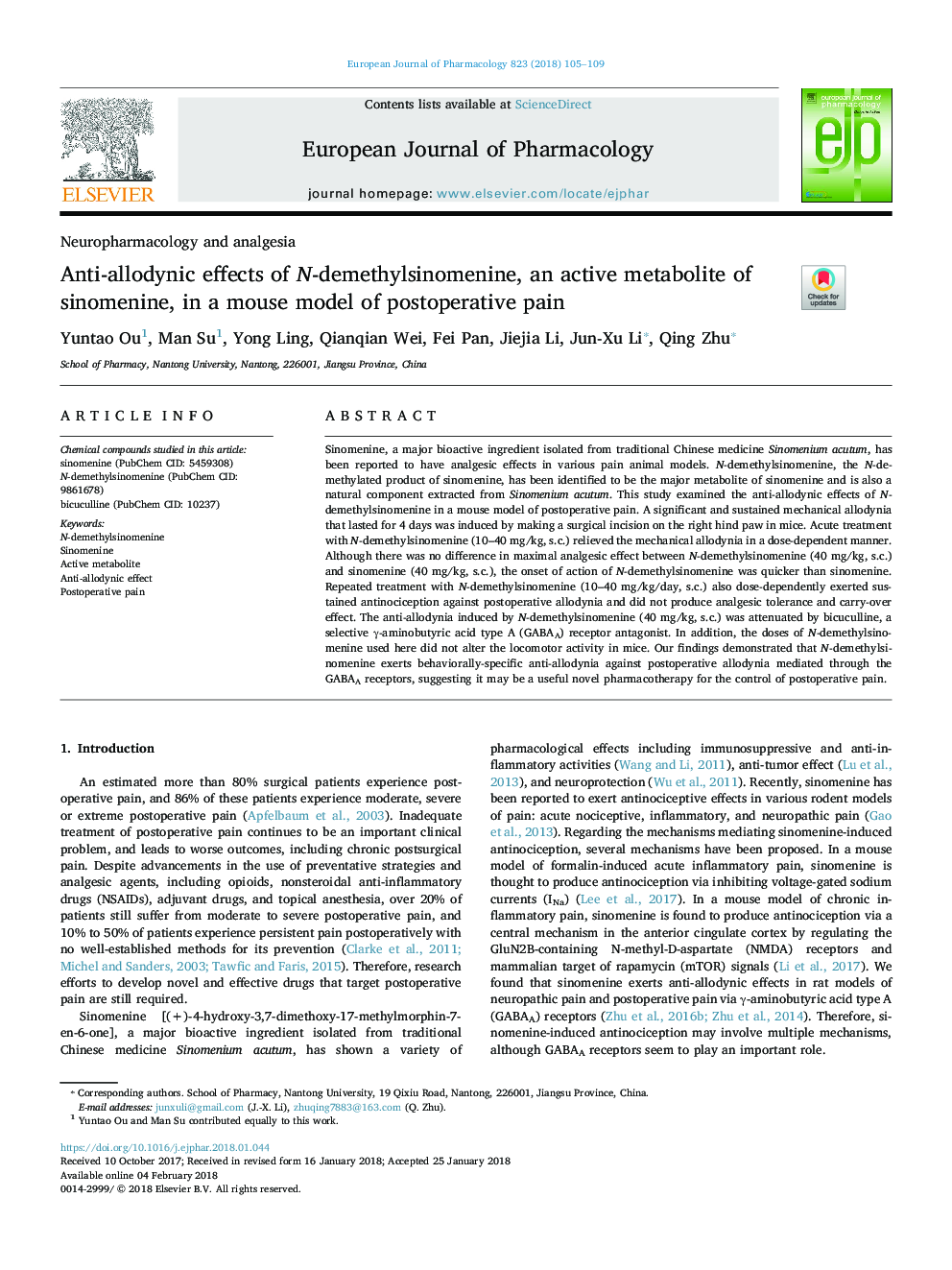| Article ID | Journal | Published Year | Pages | File Type |
|---|---|---|---|---|
| 8529336 | European Journal of Pharmacology | 2018 | 5 Pages |
Abstract
Sinomenine, a major bioactive ingredient isolated from traditional Chinese medicine Sinomenium acutum, has been reported to have analgesic effects in various pain animal models. N-demethylsinomenine, the N-demethylated product of sinomenine, has been identified to be the major metabolite of sinomenine and is also a natural component extracted from Sinomenium acutum. This study examined the anti-allodynic effects of N-demethylsinomenine in a mouse model of postoperative pain. A significant and sustained mechanical allodynia that lasted for 4 days was induced by making a surgical incision on the right hind paw in mice. Acute treatment with N-demethylsinomenine (10-40 mg/kg, s.c.) relieved the mechanical allodynia in a dose-dependent manner. Although there was no difference in maximal analgesic effect between N-demethylsinomenine (40 mg/kg, s.c.) and sinomenine (40 mg/kg, s.c.), the onset of action of N-demethylsinomenine was quicker than sinomenine. Repeated treatment with N-demethylsinomenine (10-40 mg/kg/day, s.c.) also dose-dependently exerted sustained antinociception against postoperative allodynia and did not produce analgesic tolerance and carry-over effect. The anti-allodynia induced by N-demethylsinomenine (40 mg/kg, s.c.) was attenuated by bicuculline, a selective γ-aminobutyric acid type A (GABAA) receptor antagonist. In addition, the doses of N-demethylsinomenine used here did not alter the locomotor activity in mice. Our findings demonstrated that N-demethylsinomenine exerts behaviorally-specific anti-allodynia against postoperative allodynia mediated through the GABAA receptors, suggesting it may be a useful novel pharmacotherapy for the control of postoperative pain.
Related Topics
Life Sciences
Neuroscience
Cellular and Molecular Neuroscience
Authors
Yuntao Ou, Man Su, Yong Ling, Qianqian Wei, Fei Pan, Jiejia Li, Jun-Xu Li, Qing Zhu,
